G&L Founders
-
Fred Finisher
- Posts: 188
- Joined: Wed Jun 13, 2012 5:09 am
G&L Founders
Hello, I have just returned from a quiet lunch consisting of a mixed green salad with olives, carrots, sunflower seeds and cheese with an oil and vinegar dressing. This might sound boring but it keeps me off the treadmill.
I would like to post a topic concerning the early days of G&L for those who might not be as familiar as others. Although most know of George and Leo as being the founders of G&L, many are unaware of the importance of a third member of the team. Dale Hyatt was president of sales and a driving force in making the company successful. Anyone fortunate enough to meet Dale would tell you that he was a genuinely nice guy that believed in the product we were producing. Although Leo was well known for his achievements, and George had a respectable amount of notoriety in the field, Dale had brought others fame and fortune but was not exactly a household name.
When the orders for Music Man were frozen in the factory because Tommy Walker and the folks at Music Man found out that Leo and George were building their own instruments in the CLF factory, those of us who survived the layoff worked hard to put out the first instruments for shipment. Dale was constantly looking for a way to get these guitars in the hands of the right people. Leo wanted to make the best instruments possible and George wanted to help him do it. George and Dale get less credit than they are due because their names are not on the headstocks of the Fender guitars that we are all familiar with.
I will continue this in a while, I need to get back to work.
I would like to post a topic concerning the early days of G&L for those who might not be as familiar as others. Although most know of George and Leo as being the founders of G&L, many are unaware of the importance of a third member of the team. Dale Hyatt was president of sales and a driving force in making the company successful. Anyone fortunate enough to meet Dale would tell you that he was a genuinely nice guy that believed in the product we were producing. Although Leo was well known for his achievements, and George had a respectable amount of notoriety in the field, Dale had brought others fame and fortune but was not exactly a household name.
When the orders for Music Man were frozen in the factory because Tommy Walker and the folks at Music Man found out that Leo and George were building their own instruments in the CLF factory, those of us who survived the layoff worked hard to put out the first instruments for shipment. Dale was constantly looking for a way to get these guitars in the hands of the right people. Leo wanted to make the best instruments possible and George wanted to help him do it. George and Dale get less credit than they are due because their names are not on the headstocks of the Fender guitars that we are all familiar with.
I will continue this in a while, I need to get back to work.
-
Elwood

- Posts: 2498
- Joined: Tue Feb 09, 2010 2:00 am
- Location: Canada's Mexico
Re: G&L Founders
Fred,
I'm on the edge of my seat imagining what that transition must have been like.
Thanks for the 'appetizer'. I find it interesting about the combination of a poly base with nitro
finish coats, I didn't know that was done. I'll have to look close at my early -mid 80's instruments to see
what I can see.
..really glad you decided to jump in the LR's this week
Elwood
I'm on the edge of my seat imagining what that transition must have been like.
Thanks for the 'appetizer'. I find it interesting about the combination of a poly base with nitro
finish coats, I didn't know that was done. I'll have to look close at my early -mid 80's instruments to see
what I can see.
..really glad you decided to jump in the LR's this week
Elwood
-
Fred Finisher
- Posts: 188
- Joined: Wed Jun 13, 2012 5:09 am
Re: G&L Founders
Founders: Continued
The contributions of these three men were separate but all very important to the success of the company. Anyone in sales can tell you that nothing happens in business until someone sells something. Dale worked to gain respect in the market at a time when tried and true and vintage was beginning to take hold with professional musicians. Back in the late seventies you could go into any local pawn shop and pick up used Strats or Teles for $300.00. Even less on good days. New guitars from old guys ( no offense intended ) was not exactly what the market was looking for. Charvel was bought out by Grover Jackson and there was a new market for semi custom production guitars that was taking off with the younger market. Dale fought to get this point across and he won battles on several fronts. There were some people of note willing to take a look at these new offerings. Although the Broadcaster was only offered in black when it was introduced, I remember painting a baby blue model for Carl Perkins as well as two purple ones that were slated to go to Prince. I don't know if Prince ever got his, but I understand Carl did. Dale worked hard to rid us from the stereotype of being guitars for country western players only.
George got on board with the design for the Interceptor which was way out of the box for him. We even made sure the original finishes were unconventional by using two tone techniques.
Once again. to be continued...
The contributions of these three men were separate but all very important to the success of the company. Anyone in sales can tell you that nothing happens in business until someone sells something. Dale worked to gain respect in the market at a time when tried and true and vintage was beginning to take hold with professional musicians. Back in the late seventies you could go into any local pawn shop and pick up used Strats or Teles for $300.00. Even less on good days. New guitars from old guys ( no offense intended ) was not exactly what the market was looking for. Charvel was bought out by Grover Jackson and there was a new market for semi custom production guitars that was taking off with the younger market. Dale fought to get this point across and he won battles on several fronts. There were some people of note willing to take a look at these new offerings. Although the Broadcaster was only offered in black when it was introduced, I remember painting a baby blue model for Carl Perkins as well as two purple ones that were slated to go to Prince. I don't know if Prince ever got his, but I understand Carl did. Dale worked hard to rid us from the stereotype of being guitars for country western players only.
George got on board with the design for the Interceptor which was way out of the box for him. We even made sure the original finishes were unconventional by using two tone techniques.
Once again. to be continued...
Last edited by Fred Finisher on Sun Jul 01, 2012 5:27 am, edited 1 time in total.
-
Fred Finisher
- Posts: 188
- Joined: Wed Jun 13, 2012 5:09 am
Re: G&L Founders
Founders part three:
I will try to wrap this up by saying that in a time when Fender was shooting themselves in the foot by offering Japanese instruments that weren't that different than their American counterparts and companies like Ibanez were knocking off American guitar designs, these three men decided to stay the course and believe that the American musician still wanted well built American Guitars.
If I knew then what I know now, I also would have had a lot more respect for the tenacity and ingenuity they were exemplifying.
There is much more I can say about those days but I do want to make sure that these three men get the recognition they deserve for not backing down when they could have easily given up because the odds were against them.
By the way, on any given day at the factory George, Leo and Dale were there doing what they loved. Their spouses had to pry them out of there if they wanted to go on a vacation. These guys were as hands on as they could be.
Now I'm off to the lake, yesterday's plans were changed to take my granddaughter for a golf cart ride. I hope you find this somewhat interesting. Tomorrow I will start my post earlier so that my job doesn't keep getting in the way!
I will try to wrap this up by saying that in a time when Fender was shooting themselves in the foot by offering Japanese instruments that weren't that different than their American counterparts and companies like Ibanez were knocking off American guitar designs, these three men decided to stay the course and believe that the American musician still wanted well built American Guitars.
If I knew then what I know now, I also would have had a lot more respect for the tenacity and ingenuity they were exemplifying.
There is much more I can say about those days but I do want to make sure that these three men get the recognition they deserve for not backing down when they could have easily given up because the odds were against them.
By the way, on any given day at the factory George, Leo and Dale were there doing what they loved. Their spouses had to pry them out of there if they wanted to go on a vacation. These guys were as hands on as they could be.
Now I'm off to the lake, yesterday's plans were changed to take my granddaughter for a golf cart ride. I hope you find this somewhat interesting. Tomorrow I will start my post earlier so that my job doesn't keep getting in the way!
-
astutzmann
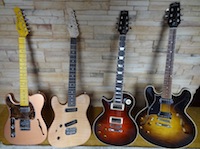
- Posts: 678
- Joined: Tue Jan 18, 2011 12:04 pm
- Location: Niagara Canada
Re: G&L Founders
Hi Fred:
Thanks very much for these stories, fascinating stuff!
We really appreciate it!
Alf
Thanks very much for these stories, fascinating stuff!
We really appreciate it!
Alf
Alf Stutzmann
-
Fred Finisher
- Posts: 188
- Joined: Wed Jun 13, 2012 5:09 am
Re: G&L Founders
Thanks Elwood, This method was similar to the polyester base coats CBS introduced to Fender guitars after they took over. If you have ever tried to strip the finish on a Fender you know how tough it is to do. It did not buff well so it was not used for top coats until much later when the formulations were changed.
Fred
Fred
-
Brock
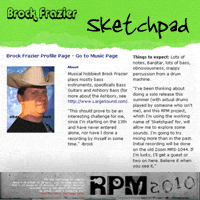
- Posts: 259
- Joined: Tue Feb 23, 2010 5:02 pm
Re: G&L Founders
Interesting reports, Fred. Thanks.
-
louis cyfer
- Posts: 3011
- Joined: Tue Oct 25, 2011 2:58 pm
Re: G&L Founders
fender was using a fullerplast before cbs bought it, which is an impenetrable plastic base. they were using other poly bases before that in the 50's. . so the nitro superiority in sound is a total myth. it does however feel, wear and age different.Elwood wrote:Fred,
I'm on the edge of my seat imagining what that transition must have been like.
Thanks for the 'appetizer'. I find it interesting about the combination of a poly base with nitro
finish coats, I didn't know that was done. I'll have to look close at my early -mid 80's instruments to see
what I can see.
..really glad you decided to jump in the LR's this week
Elwood
-
meowmix
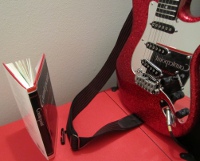
- Posts: 499
- Joined: Fri Dec 31, 2010 3:09 pm
- Location: California
Re: G&L Founders
Hi
Great to hear these history lessons. Straight from someone that has been there.
When you use a finish that one can see through to the wood. Is that wood Swamp Ash? (except for those specially made ones)
Was there a certain protocol as to what woods could be used with certain finishes?
At one time the Sunburst/Cherryburst was consider 'Premier', today it is a 'Standard'. What happened there?
Thanks.
Peter
Great to hear these history lessons. Straight from someone that has been there.
When you use a finish that one can see through to the wood. Is that wood Swamp Ash? (except for those specially made ones)
Was there a certain protocol as to what woods could be used with certain finishes?
At one time the Sunburst/Cherryburst was consider 'Premier', today it is a 'Standard'. What happened there?
Thanks.
Peter
-
jonc
- Posts: 336
- Joined: Fri Feb 26, 2010 4:11 pm
Re: G&L Founders
thanks for the informative posts and for the Inteceptor tidbit. from the info on Greg G's site, Leo hated the design and i've read he could be extremely stubborn and unmovable on many things. glad those guitars and basses went into production if only for a short time. for anyone who has played either the bass or guitar knows how comfortable they are and how great they play and sound. my only criticism of Leo-era G&L's are the fugly control plates that appear on some models like the "cloud-plate" G-200. Though none are quite as bad as the look of the MM Stingray guitar. it looks like Dale was responsible for the change to rear-loaded controls on the G-200 which looks much better, so i guess it was a natural extension to do the same on the later L1k's. here's a cherry sunburst Interceptor with hummers that i got many years back. the control plate is not "too bad" on these. ;

-
Fred Finisher
- Posts: 188
- Joined: Wed Jun 13, 2012 5:09 am
Re: G&L Founders
Peter, as far as Swamp ash goes, that is the species of wood. Ash has been used for decades by Fender, Music Man and G&L. Ash can be Natural, or colored but is rarely painted over because the grain of the wood tends to show up over time and it doesn't look as smooth. Cherry finishes can only be used over pieces of wood that are free of defect or at least not patched or poorly matched bodies. Therefore the best bodies are selected for clear finishes. This also gives you a good idea of what is under the solid colors. Not all solid color guitar bodies are ugly though, some end up that way because when you need a certain amount of solid colored bodies to fill your orders, you can't wait for a batch of not so nice ones to come through. Hope this helps,
Fred
Fred
-
Fred Finisher
- Posts: 188
- Joined: Wed Jun 13, 2012 5:09 am
Re: G&L Founders
Hello Jonc,
I have to agree on some of the control plate designs. Remember that these were a trademark of Leo and George because they were very much in tune with keeping your guitar playing with a minimum of effort. Anyone who has done wiring work on guitars knows how hard it is to get to the pots and switches when you are trying to fix or replace something on rear loaded or even strat style guitars with everything connected to the pick guard. These plates made it easy to undo, repair and even test the instrument without detuning and or removing the strings. It also made it easier for the small parts department to completely assemble the controls and send them over to the assemblers to build the instrument faster.
Fred
I have to agree on some of the control plate designs. Remember that these were a trademark of Leo and George because they were very much in tune with keeping your guitar playing with a minimum of effort. Anyone who has done wiring work on guitars knows how hard it is to get to the pots and switches when you are trying to fix or replace something on rear loaded or even strat style guitars with everything connected to the pick guard. These plates made it easy to undo, repair and even test the instrument without detuning and or removing the strings. It also made it easier for the small parts department to completely assemble the controls and send them over to the assemblers to build the instrument faster.
Fred
-
jonc
- Posts: 336
- Joined: Fri Feb 26, 2010 4:11 pm
Re: G&L Founders
Thanks Fred. I'm familiar with the concept and i believe the Strat was designed as 3 components for ease of assembly. I just wish some of the designs had been better looking. The G-300 though a rarer of rare birds has what I would call an unfortunate looking control plate.
-
zapcosongs
- Posts: 1337
- Joined: Mon Mar 01, 2010 6:15 am
- Location: Suburban Washington, DC
Re: G&L Founders
Fantastic, insightful week going here.
Jonc, that is one truly stunning Interceptor. Wow! Is that body maple? And is it possible that it might be a single piece of wood? Hard to tell from here, but geez! - ed
Jonc, that is one truly stunning Interceptor. Wow! Is that body maple? And is it possible that it might be a single piece of wood? Hard to tell from here, but geez! - ed
-
jonc
- Posts: 336
- Joined: Fri Feb 26, 2010 4:11 pm
Re: G&L Founders
hi ed -- all Interceptors had maple bodies with the earlier ones being flame maple (nice example in the Registry). i doubt it's a one-piece body but will take another look. what i like most is the cherry sb finish and the hummers. although Interceptor's with Skyhawk pups seemed to be preferred by many. the other nice thing about this guitar is it's light for standing and tucks in just right when sitting down.
-
blargfromouterspace
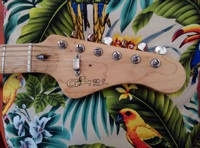
- Posts: 2390
- Joined: Sat Apr 03, 2010 5:45 am
- Location: Central Highlands, Australia
Re: G&L Founders
Wow. I'd love to see those ones, they'd be worth a mint!Fred Finisher wrote:....as well as two purple ones that were slated to go to Prince..
-Jamie
-
Craig

- Site Admin
- Posts: 11736
- Joined: Tue Mar 03, 2009 10:52 am
- Location: Either Coto De Caza, CA or Paso Robles, CA
Re: G&L Founders
I'm not familiar with a G-300. We've got a couple of S-300's in the Prototypes Album in the Gallery and I've seen blueprints for the T-300 and F-300 but not the G-300.jonc wrote:Thanks Fred. I'm familiar with the concept and i believe the Strat was designed as 3 components for ease of assembly. I just wish some of the designs had been better looking. The G-300 though a rarer of rare birds has what I would call an unfortunate looking control plate.
Do you have any pictures of the G-300?
--Craig [co-webmaster of guitarsbyleo.com, since Oct. 16, 2000]
Welcome! Read This First
Got a G&L question? Check out the: G&L Knowledgebase
Current G&L Specifications and Options
Welcome! Read This First
Got a G&L question? Check out the: G&L Knowledgebase
Current G&L Specifications and Options
-
Craig

- Site Admin
- Posts: 11736
- Joined: Tue Mar 03, 2009 10:52 am
- Location: Either Coto De Caza, CA or Paso Robles, CA
Re: G&L Founders
AFAIK, Sunburst and Cherryburst have always been Standard finishes. The first reference to Premier and Standardmeowmix wrote: At one time the Sunburst/Cherryburst was consider 'Premier', today it is a 'Standard'. What happened there?
Thanks.
Peter
finishes, which I know of, are in the 1993-94 G&L Catalog, page 5. They have remained in the Standard finishes to date.
--Craig [co-webmaster of guitarsbyleo.com, since Oct. 16, 2000]
Welcome! Read This First
Got a G&L question? Check out the: G&L Knowledgebase
Current G&L Specifications and Options
Welcome! Read This First
Got a G&L question? Check out the: G&L Knowledgebase
Current G&L Specifications and Options
-
jonc
- Posts: 336
- Joined: Fri Feb 26, 2010 4:11 pm
Re: G&L Founders
ugh - - finger trouble. i too would LOVE to see a G-300. whatever that might be. thanks for the correction Craig
-
zapcosongs
- Posts: 1337
- Joined: Mon Mar 01, 2010 6:15 am
- Location: Suburban Washington, DC
Re: G&L Founders
Jonc, I just figured that you were in search of the elusive G-Spot, as I suspect many of us here are and forever will be. ;+) - ed
-
Ledergeist
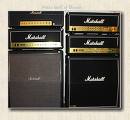
- Posts: 157
- Joined: Mon Feb 08, 2010 11:47 pm
- Location: 43 N 87.5 W
Re: G&L Founders
Fred,
Great stuff... Looking forward to the rest of the week......
BW
Great stuff... Looking forward to the rest of the week......
BW
Too Much of a Good Thing is Never Enough
-
Elwood

- Posts: 2498
- Joined: Tue Feb 09, 2010 2:00 am
- Location: Canada's Mexico
Re: G&L Founders
I don't remember previous discussions (if any) about the F-300 . Craig, do you have any linkable info ?Craig wrote:jonc wrote: We've got a couple of S-300's in the Prototypes Album in the Gallery and I've seen blueprints for the T-300 and F-300 but not the G-300.
-
Craig

- Site Admin
- Posts: 11736
- Joined: Tue Mar 03, 2009 10:52 am
- Location: Either Coto De Caza, CA or Paso Robles, CA
Re: G&L Founders
All I have is this photo of the blueprint Dean took a couple of years ago at the factory:Elwood wrote:I don't remember previous discussions (if any) about the F-300 . Craig, do you have any linkable info ?Craig wrote:jonc wrote: We've got a couple of S-300's in the Prototypes Album in the Gallery and I've seen blueprints for the T-300 and F-300 but not the G-300.
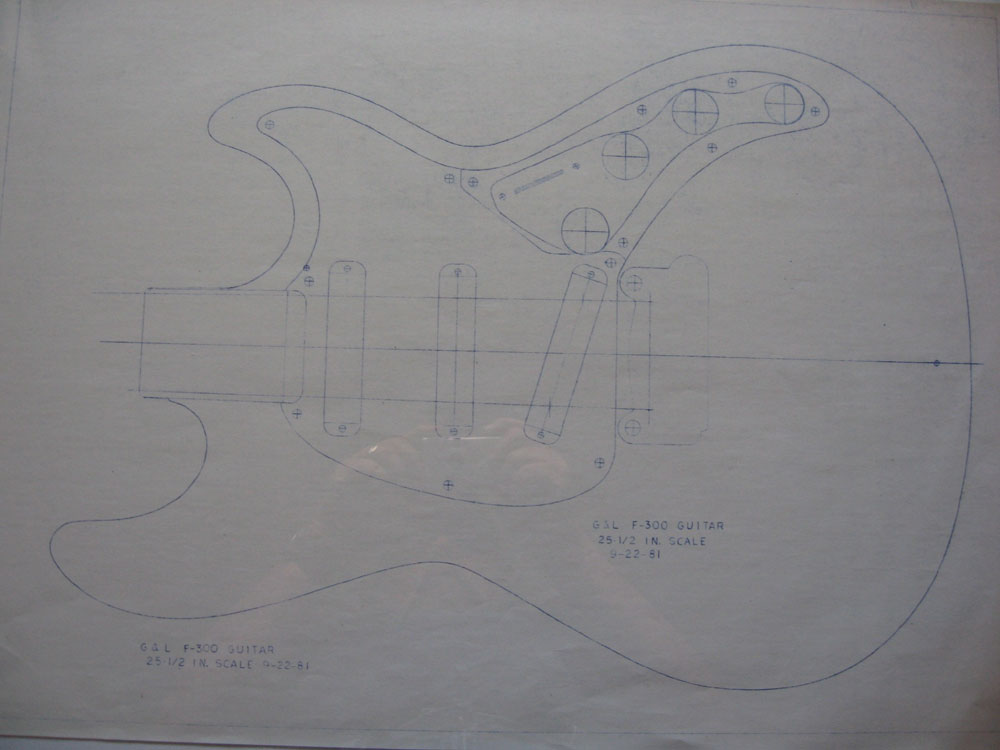
Perhaps Gabe and Greg will have some info about it in their book.
--Craig [co-webmaster of guitarsbyleo.com, since Oct. 16, 2000]
Welcome! Read This First
Got a G&L question? Check out the: G&L Knowledgebase
Current G&L Specifications and Options
Welcome! Read This First
Got a G&L question? Check out the: G&L Knowledgebase
Current G&L Specifications and Options
-
JagInTheBag
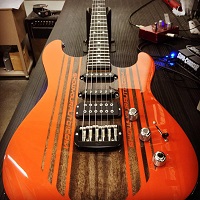
- Posts: 1640
- Joined: Sat Jan 07, 2012 11:46 pm
- Location: Grayslake, IL
Re: G&L Founders
Last edited by JagInTheBag on Wed Jun 27, 2012 10:08 am, edited 1 time in total.
-
JagInTheBag

- Posts: 1640
- Joined: Sat Jan 07, 2012 11:46 pm
- Location: Grayslake, IL
Re: G&L Founders
looks a ton like one of George's "control plate" Strats...Craig wrote:All I have is this photo of the blueprint Dean took a couple of years ago at the factory:Elwood wrote:I don't remember previous discussions (if any) about the F-300 . Craig, do you have any linkable info ?Craig wrote:jonc wrote: We've got a couple of S-300's in the Prototypes Album in the Gallery and I've seen blueprints for the T-300 and F-300 but not the G-300.
Perhaps Gabe and Greg will have some info about it in their book.
-
Elwood

- Posts: 2498
- Joined: Tue Feb 09, 2010 2:00 am
- Location: Canada's Mexico
Re: G&L Founders
Thanks Craig !!
-
Miles Smiles
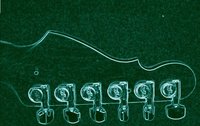
- Posts: 610
- Joined: Fri Mar 05, 2010 2:02 am
- Location: Europe/Austria
Re: G&L Founders
Currently there's an F-100 at Ebay, which has been modified, the seller writes like S-500, but it would be more like an F-300, except for the plastic pick guard and the controls.
http://www.ebay.com/itm/1981-G-L-F-100- ... 0844552294
What for would the 4 control knobs on the F-300 have been?
http://www.ebay.com/itm/1981-G-L-F-100- ... 0844552294
What for would the 4 control knobs on the F-300 have been?
-
Elwood

- Posts: 2498
- Joined: Tue Feb 09, 2010 2:00 am
- Location: Canada's Mexico
Re: G&L Founders
I bet the southern-most crosshairs denote the output jack .
That would leave three pots; Vol / Tone / Tone (?) .
I thought four pots at first glance also.
Elwood
That would leave three pots; Vol / Tone / Tone (?) .
I thought four pots at first glance also.
Elwood
-
Miles Smiles

- Posts: 610
- Joined: Fri Mar 05, 2010 2:02 am
- Location: Europe/Austria
Re: G&L Founders
Oh yes, thanks!Elwood wrote:I bet the southern-most crosshairs denote the output jack
-
darwinohm
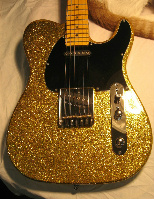
- Posts: 3218
- Joined: Mon Mar 01, 2010 1:13 pm
- Location: Minneapolis/St Paul
Re: G&L Founders
Great stuff Fred. Keep it coming!!-- Darwin
-
Jaystrings
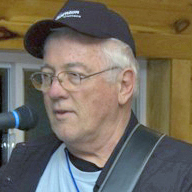
- Posts: 121
- Joined: Fri Feb 26, 2010 10:19 pm
Re: G&L Founders
This is good.......... AND exciting!!
Thanks,
Jay
Thanks,
Jay
-
meowmix

- Posts: 499
- Joined: Fri Dec 31, 2010 3:09 pm
- Location: California
Re: G&L Founders
Thanks Fred.Fred Finisher wrote: Ash has been used for decades by Fender, Music Man and G&L. Ash can be Natural, or colored but is rarely painted over because the grain of the wood tends to show up over time and it doesn't look as smooth.
Fred
I did not know that. Swamp ash - not good for solid colors.
-
louis cyfer
- Posts: 3011
- Joined: Tue Oct 25, 2011 2:58 pm
Re: G&L Founders
what a shame. the fool removed too much wood from the bridge pup cavity and the trem post is cracked. this guitar is not playable in its current condition, and will take some pretty penny to get it there. even at 200 it's a lot. between repairing the cracked horn and the cracked trem post (no guarantee it can be repaired well), you are into it quite a bit.Miles Smiles wrote:Currently there's an F-100 at Ebay, which has been modified, the seller writes like S-500, but it would be more like an F-300, except for the plastic pick guard and the controls.
http://www.ebay.com/itm/1981-G-L-F-100- ... 0844552294
What for would the 4 control knobs on the F-300 have been?
-
westsideduck

- Posts: 216
- Joined: Fri Feb 26, 2010 6:12 pm
- Location: Buffalo New York
Re: G&L Founders
Great stuff Fred, I've spoken at length with Gabe regarding the G-200 model and here is one of Gabe's old posts regarding the G-200, I would imagine most of gabes info was culled from Dale regarding the G-200. Can you shed any light from your insiders perspective.
Here is the deal on the G-200...
Leo did not "hate" the G-200 model. Who do you think developed the circuit for the guitar? Yes, Leo...100% Leo. It is true that George Fullerton came up with the concept and that the body shape and use of a pair of large MFD humbuckers was solely his idea. But the design of the pickups and the circuit was 100% Leo's domain. If Leo hated the concept so much he most certainly would never have allowed such an isntrument to have been built.
In discussing this with Dale Hyatt, his comments to me were that he received a considerable amount of criticism at January 1982 NAMM show regarding how hideous the control plate was. Dale coined the term, "It looks like a rain cloud" and he himself openly explained this to Leo. Leo was dead-set on loading controls from the top of the guitar affixed to a metal plate. Sales of the G-200 were horrid in 1982...the production logs prove this. Remember, at least 50 would have been produced right off the bat to fill the pipeline...the rest of the production would have been for actual orders...and they simply did not come in. BTW, the G-200 was an inexpensive instrument compared to the F-100 and soon to follow S-500.
In an attempt to please the distributors, Dale built (with his own hands) the first G&L to ever have rear-loaded controls...which was a G-200. He handed it over to his close friend and shop floor supervisor, Lloyd Chewning for a burst finish...and the first rear-loaded G-200 was born. Now, Leo really didn't like this...in fact, he hated it! He was concerned that there would be durability problems with the instruments should they be dropped with the tiny portion of mahogany between the knobs and the pots. He also didn't like the recessed control plate...remember, Leo had a deep seeded disdain for the Gibson company and avoided doing anything that they were known for.
Anyway, Dale took the G-200 to the distributors and they liked it better but now found the 6 per side headstock to be their next beef...they wanted 3 per side like a Gibson...and maybe a carved top, etc. Dale knew this was a losing battle as there was no way in hell Leo was going to let G&L build the guitar they wanted...which was a Gibson with MFD pickups.
By this time it was 1983 and Leo and George were building prototype upon prototype of new and different models. The G-200 simply did not sell well and it made now sense to keep in the line with all the other stuff going on...thus it died.
Now back to Leo allegedly "hating" the G-200. There is no real truth to this from what I understand. There is some truth to the fact that Leo was not fond of the nomenclature...you see, he did not like the "G" being used as a designation. Whether "G" stood for George or "G" stood for Gibson...Leo didn't like it and he made this perfectly clear. In Leo's mind, these were his instruments and this was his company. Remember, prior to this there were only "F's" (for Fender) and "L's" (For Leo). The S's didn't come until later along with all the other names like Cavalier, Nighthawk, Skyhawk, Superhawk, Rampage, Comanche, etc.
I know that George Fullerton has stated numerous times that the G-200 was a huge success but Leo pulled the plug on it. When I discussed this with Lloyd Chewning, many years ago, he stated that he was quite frankly surprised that they made even 200 of them...in that he remembers orders to the shop floor for G-200's as just trickling in during 82' compared to F-100's and S-500's. He also said that if Leo didn't like something...he was sure to hear about it and he assured me that Leo never said a word to him about "disliking" the G-200 model.
Dale Hyatt has always told me that he personally loved the G-200 (other than the cloud plate) and felt that it was one of George's best designs and one of the finest guitars they ever produced while he was at G&L.
Being a fortunate owner of a G-200 and having played more than a few...I have to say I agree with Dale on this one.
Gabe
Here's my old 200 that I bought from Brad T. and sold quite a few years ago for a whopping profit, One of the best sounding G&Ls I ever owned, just didn't like the short scale and didn't play it much, as nice as it was it just couldn't beat out my 82 S-500 for the #1 spot with me. Hopefully you can touch on the design and production of the 82 S-500 this week as IMO is the best guitar Leo ever produced.
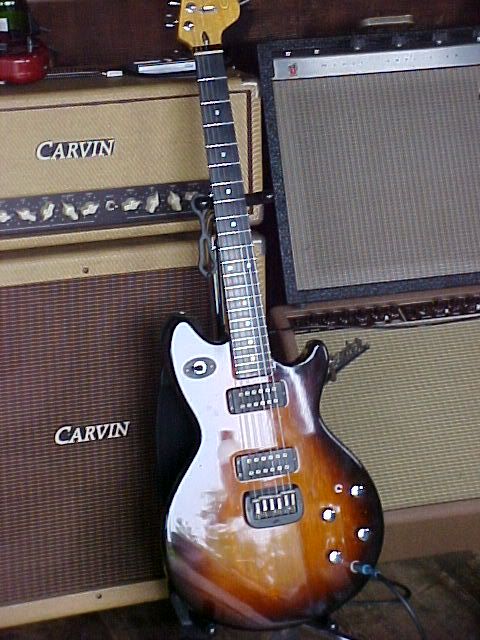
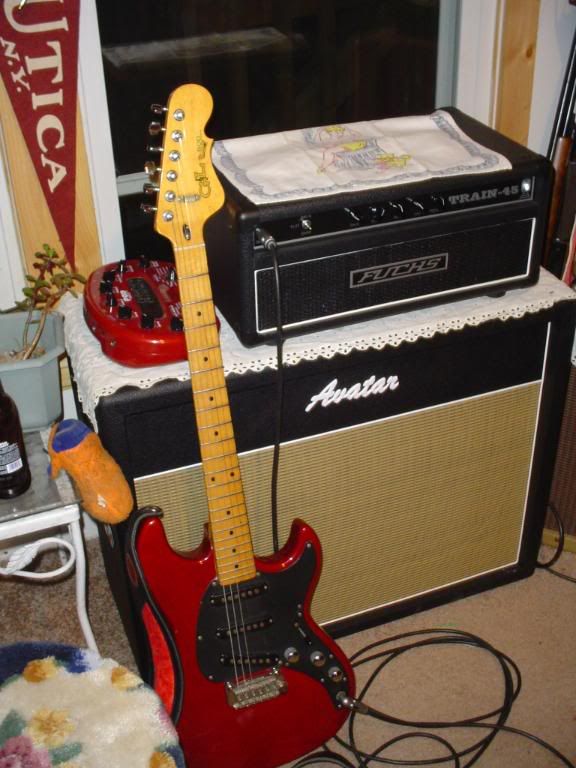
Here is the deal on the G-200...
Leo did not "hate" the G-200 model. Who do you think developed the circuit for the guitar? Yes, Leo...100% Leo. It is true that George Fullerton came up with the concept and that the body shape and use of a pair of large MFD humbuckers was solely his idea. But the design of the pickups and the circuit was 100% Leo's domain. If Leo hated the concept so much he most certainly would never have allowed such an isntrument to have been built.
In discussing this with Dale Hyatt, his comments to me were that he received a considerable amount of criticism at January 1982 NAMM show regarding how hideous the control plate was. Dale coined the term, "It looks like a rain cloud" and he himself openly explained this to Leo. Leo was dead-set on loading controls from the top of the guitar affixed to a metal plate. Sales of the G-200 were horrid in 1982...the production logs prove this. Remember, at least 50 would have been produced right off the bat to fill the pipeline...the rest of the production would have been for actual orders...and they simply did not come in. BTW, the G-200 was an inexpensive instrument compared to the F-100 and soon to follow S-500.
In an attempt to please the distributors, Dale built (with his own hands) the first G&L to ever have rear-loaded controls...which was a G-200. He handed it over to his close friend and shop floor supervisor, Lloyd Chewning for a burst finish...and the first rear-loaded G-200 was born. Now, Leo really didn't like this...in fact, he hated it! He was concerned that there would be durability problems with the instruments should they be dropped with the tiny portion of mahogany between the knobs and the pots. He also didn't like the recessed control plate...remember, Leo had a deep seeded disdain for the Gibson company and avoided doing anything that they were known for.
Anyway, Dale took the G-200 to the distributors and they liked it better but now found the 6 per side headstock to be their next beef...they wanted 3 per side like a Gibson...and maybe a carved top, etc. Dale knew this was a losing battle as there was no way in hell Leo was going to let G&L build the guitar they wanted...which was a Gibson with MFD pickups.
By this time it was 1983 and Leo and George were building prototype upon prototype of new and different models. The G-200 simply did not sell well and it made now sense to keep in the line with all the other stuff going on...thus it died.
Now back to Leo allegedly "hating" the G-200. There is no real truth to this from what I understand. There is some truth to the fact that Leo was not fond of the nomenclature...you see, he did not like the "G" being used as a designation. Whether "G" stood for George or "G" stood for Gibson...Leo didn't like it and he made this perfectly clear. In Leo's mind, these were his instruments and this was his company. Remember, prior to this there were only "F's" (for Fender) and "L's" (For Leo). The S's didn't come until later along with all the other names like Cavalier, Nighthawk, Skyhawk, Superhawk, Rampage, Comanche, etc.
I know that George Fullerton has stated numerous times that the G-200 was a huge success but Leo pulled the plug on it. When I discussed this with Lloyd Chewning, many years ago, he stated that he was quite frankly surprised that they made even 200 of them...in that he remembers orders to the shop floor for G-200's as just trickling in during 82' compared to F-100's and S-500's. He also said that if Leo didn't like something...he was sure to hear about it and he assured me that Leo never said a word to him about "disliking" the G-200 model.
Dale Hyatt has always told me that he personally loved the G-200 (other than the cloud plate) and felt that it was one of George's best designs and one of the finest guitars they ever produced while he was at G&L.
Being a fortunate owner of a G-200 and having played more than a few...I have to say I agree with Dale on this one.
Gabe
Here's my old 200 that I bought from Brad T. and sold quite a few years ago for a whopping profit, One of the best sounding G&Ls I ever owned, just didn't like the short scale and didn't play it much, as nice as it was it just couldn't beat out my 82 S-500 for the #1 spot with me. Hopefully you can touch on the design and production of the 82 S-500 this week as IMO is the best guitar Leo ever produced.


-
Fred Finisher
- Posts: 188
- Joined: Wed Jun 13, 2012 5:09 am
Re: G&L Founders
Hello Westsideduck,
There are lots of versions on why something was changed or done away with as you might have guessed. From what I remember, Leo was responding to market demands when the G-200 was made but I doubt he pulled the plug on it. I really don't think it sold well because it was considered a dumbed down version of a Les Paul by many people that saw it. This guitar required a new neck slotting machine ( which cannot be picked up at Home Depot ) so a lot of planning was required to pull it off. I agree with Gabe, if he didn't want to do it, it would not have been done. Leo's stubbornness is what fueled his tenacity where others would have given up. Bass players all over the world owe a debt of gratitude to Leo for making a bass a little larger than the standard electric guitar.
Fred
There are lots of versions on why something was changed or done away with as you might have guessed. From what I remember, Leo was responding to market demands when the G-200 was made but I doubt he pulled the plug on it. I really don't think it sold well because it was considered a dumbed down version of a Les Paul by many people that saw it. This guitar required a new neck slotting machine ( which cannot be picked up at Home Depot ) so a lot of planning was required to pull it off. I agree with Gabe, if he didn't want to do it, it would not have been done. Leo's stubbornness is what fueled his tenacity where others would have given up. Bass players all over the world owe a debt of gratitude to Leo for making a bass a little larger than the standard electric guitar.
Fred
-
jonc
- Posts: 336
- Joined: Fri Feb 26, 2010 4:11 pm
Re: G&L Founders
I thought it was the Interceptor Leo didn't like? And speaking of early S-500's - - do you prefer mahogany or maple body wood?
-
LeoFThe Champion
- Posts: 270
- Joined: Tue Aug 04, 2015 2:20 am
Re: G&L Founders
G'day Fred , very impressed by how healthy your lunches are. I make a living out of keeping people on the treadmill. I hope you will tell us what your favourite G& L guitars are.
Cheers
Anthony
Cheers
Anthony
-
Fred Finisher
- Posts: 188
- Joined: Wed Jun 13, 2012 5:09 am
Re: G&L Founders
Hello Jonc,
The way I remember it Leo was not as crazy about the Interceptor as he was other models. This guitar was of course developed to meet a need for less than conventional body designs. There was a resurgence in the early eighties of Flying V's, Explorers, Firebirds and of course the variations that were coming out of the Charvel / Jackson plant in San Dimas. I have some pictures ( not very good ones ) of the first NAMM show we displayed the Interceptor at. I will try to get them posted soon.
As far as a preference to Maple or Mahogany, I have always liked Maple for a number of reasons but the Mahogany bodies had a certain vintage look to them that is hard to beat. The mahogany bodies were stopped in production because Leo was convinced that the tone on them was not very good. If you have an early Mahogany G&L, you have one of the few that was completed before we halted production and destroyed the inventory.
Fred
The way I remember it Leo was not as crazy about the Interceptor as he was other models. This guitar was of course developed to meet a need for less than conventional body designs. There was a resurgence in the early eighties of Flying V's, Explorers, Firebirds and of course the variations that were coming out of the Charvel / Jackson plant in San Dimas. I have some pictures ( not very good ones ) of the first NAMM show we displayed the Interceptor at. I will try to get them posted soon.
As far as a preference to Maple or Mahogany, I have always liked Maple for a number of reasons but the Mahogany bodies had a certain vintage look to them that is hard to beat. The mahogany bodies were stopped in production because Leo was convinced that the tone on them was not very good. If you have an early Mahogany G&L, you have one of the few that was completed before we halted production and destroyed the inventory.
Fred
-
Fred Finisher
- Posts: 188
- Joined: Wed Jun 13, 2012 5:09 am
Re: G&L Founders
Hello Anthony,
As far as my favorite G&L goes, I have to be honest about the fact that for many years I was out of the loop as far as keeping up with what was being developed. I plan to go to a dealer soon and see how the new offerings compare to the ones I was involved with. One of my favorite playing guitars was the S-500 and the L-1000 was hard to beat for tone and feel. I will chime in later after I check out some of the newer models.
Fred
As far as my favorite G&L goes, I have to be honest about the fact that for many years I was out of the loop as far as keeping up with what was being developed. I plan to go to a dealer soon and see how the new offerings compare to the ones I was involved with. One of my favorite playing guitars was the S-500 and the L-1000 was hard to beat for tone and feel. I will chime in later after I check out some of the newer models.
Fred
-
Aussie
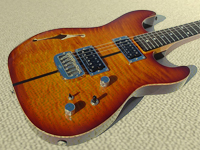
- Posts: 223
- Joined: Sat Feb 13, 2010 2:27 am
- Location: Perth, Western Australia
Re: G&L Founders
Hey Fred
Great to hear from one of the founding team this week ( would be great to have a week of reminiscences from jhana in the near future too - hint, hint).
There have been quite a few interesting tidbits in your reports this week but for some reason this really intrigued me
Really intersting stuff Fred. Sucess is the product of both vision and execution and you should rightfully take pride in your role as part of that equation.
cheers, Robbie
Great to hear from one of the founding team this week ( would be great to have a week of reminiscences from jhana in the near future too - hint, hint).
There have been quite a few interesting tidbits in your reports this week but for some reason this really intrigued me
Personally I like mahogany bodies. I've heard it said that many of Leo's later guitar and pick up designs were the product of his "aging" hearing (ie loss of higher frequencies). Ceasing of production I could understand (well sort of ...), but the destruction of inventory seems to be one heck of a statement. Were there actual guitars and biodies destroyed? What models?Fred Finisher wrote:The mahogany bodies were stopped in production because Leo was convinced that the tone on them was not very good. If you have an early Mahogany G&L, you have one of the few that was completed before we halted production and destroyed the inventory.
Really intersting stuff Fred. Sucess is the product of both vision and execution and you should rightfully take pride in your role as part of that equation.
cheers, Robbie
"Knowledge Speaks, Wisdom Listens" - Jimi Hendrix
-
Elwood

- Posts: 2498
- Joined: Tue Feb 09, 2010 2:00 am
- Location: Canada's Mexico
Re: G&L Founders
I had the same questions running through my head since reading that.Aussie wrote:
Personally I like mahogany bodies. I've heard it said that many of Leo's later guitar and pick up designs were the product of his "aging" hearing (ie loss of higher frequencies). Ceasing of production I could understand (well sort of ...), but the destruction of inventory seems to be one heck of a statement. Were there actual guitars and biodies destroyed? What models?
-
Miles Smiles

- Posts: 610
- Joined: Fri Mar 05, 2010 2:02 am
- Location: Europe/Austria
Re: G&L Founders
Is also mentioned here: http://guitarsbyleo.com/FORUM/viewtopic ... 273#p41735Elwood wrote: I had the same questions running through my head since reading that.
-
jonc
- Posts: 336
- Joined: Fri Feb 26, 2010 4:11 pm
Re: G&L Founders
thx Fred. my personal feeling is the mahogany works great with early S-500's and those guitars with hummers. I had both an ash and mahogany Cav and the hog was fuller, smoother, rounder and punchier without losing any of the spank. for large MFD's, which are one of my favorite pups, maple is #1 imho.
robbie: if i'm not mistaken, destroying prototypes, testers, and others were standard routine at Fender. Tim from BB was offering, via George Fullerton's family, prototypes that Leo had been working on. Apart from the historical value, the fact that they didn't get destroyed was one of the main points of the back story.
robbie: if i'm not mistaken, destroying prototypes, testers, and others were standard routine at Fender. Tim from BB was offering, via George Fullerton's family, prototypes that Leo had been working on. Apart from the historical value, the fact that they didn't get destroyed was one of the main points of the back story.
-
Fred Finisher
- Posts: 188
- Joined: Wed Jun 13, 2012 5:09 am
Re: G&L Founders
Yes indeed, the bodies that were not already assembled and ready to ship were destroyed. This indeed caused quite a bit of commotion among the employees because nobody likes to see what they are working on get thrown out. It is a fact of production that when something is deemed as sub standard for any reason you have to get rid of it. Storing things you don't plan to use costs money too.
Fred
Fred
-
Fred Finisher
- Posts: 188
- Joined: Wed Jun 13, 2012 5:09 am
Re: G&L Founders
jonc,
The sale of protos began when Leo would continually run out of room in his office. They didn't want to destroy working instruments so they began to sell them to us starting with the lead men and supervisors. After he had emptied the carts of all the ones he was done tinkering with or had gone to production, he would start again with new ones and some time later there would be another round of sales. I was fortunate enough to buy four of these instruments myself.
Fred
The sale of protos began when Leo would continually run out of room in his office. They didn't want to destroy working instruments so they began to sell them to us starting with the lead men and supervisors. After he had emptied the carts of all the ones he was done tinkering with or had gone to production, he would start again with new ones and some time later there would be another round of sales. I was fortunate enough to buy four of these instruments myself.
Fred
-
Jhana

- Posts: 9
- Joined: Sun Jun 10, 2012 4:56 pm
- Location: Location ,Location. O.C. CA
Re: G&L Founders
So I guess I should feel special that he gave me that MM bass that I traded for the TeleFred Finisher wrote:jonc,
The sale of protos began when Leo would continually run out of room in his office. They didn't want to destroy working instruments so they began to sell them to us starting with the lead men and supervisors. After he had emptied the carts of all the ones he was done tinkering with or had gone to production, he would start again with new ones and some time later there would be another round of sales. I was fortunate enough to buy four of these instruments myself.
Fred
"In theory, there is no difference between theory and practice; in practice there is." ~ Chuck Reid
-
electrodyne
- Posts: 29
- Joined: Mon Dec 17, 2012 9:59 am
Re: G&L Founders
Ditto!Fred Finisher wrote:
....as well as two purple ones that were slated to go to Prince..
Jamie wrote:
Wow. I'd love to see those ones, they'd be worth a mint!
I'm a huge Prince fan. Another member of this fine group just tipped me off about this.
If any of the original G&L workforce has photos of the Broadcasters sent to Prince, please post them.
What a great little bit of history!
-
meursault

- Posts: 300
- Joined: Tue Feb 19, 2013 3:36 am
- Location: belgium
Re: G&L Founders
cool posts !
thanx !
edit : i just read the "about" on the G&L website... Fullerton is not even named... it is more about maclaren/Leo history ! comon' guys !
thanx !
in which way was it different from offering korean/indonesian instruments ?... especially when i read reviews or opinions about tribute saying they are "almost" as good as US ones...Fred Finisher wrote:Founders part three:
I will try to wrap this up by saying that in a time when Fender was shooting themselves in the foot by offering Japanese instruments that weren't that different than their American counterparts and companies like Ibanez were knocking off American guitar designs, these three men decided to stay the course and believe that the American musician still wanted well built American Guitars.
edit : i just read the "about" on the G&L website... Fullerton is not even named... it is more about maclaren/Leo history ! comon' guys !
-
Skyhawk
- Posts: 139
- Joined: Mon Jan 28, 2013 9:38 am
Re: G&L Founders
Good stuff ! I always like to hear the stories of the early days.
LS
LS
-
Fred Finisher
- Posts: 188
- Joined: Wed Jun 13, 2012 5:09 am
Re: G&L Founders
Electrodyne,
Wow,
This thread goes way back, at least for me. I will need to ask Gabe if he or Kenny have the original records for the Purple Broadcasters. The story I was told when I was asked to paint them was that we were making them for a guy who would get them to Prince. Who knows if he was blowing smoke or if he really did acquire instruments for him.
Meursault, the stigma of an imported instrument has changed drastically because of the level of quality that began to come out of Japan at that time. As the instruments got better, the idea of playing an imported guitar such as an Ibanez or Yamaha was no longer a problem for the serious or professional player. One of the reasons that Fender and Gibson were experiencing sales declines were the fact that the seventies were not the best years for quality control. As the instruments began to decline in quality in the U.S., Japan stepped up their game and took serious market share. That is why the early Squires have a great resale value, they were actually decent instruments. With a few mods, mostly in pups and electronics, some would say they are as good or better than the Fenders of the same time frame. As far as all the imports of today go, I have seen good and bad ones. It really depends on what you are doing with them and if resale matters. Reselling an import guitar is hard to do without taking a hit so buying one as an investment is usually not a good idea in my opinion.
Fred
Wow,
This thread goes way back, at least for me. I will need to ask Gabe if he or Kenny have the original records for the Purple Broadcasters. The story I was told when I was asked to paint them was that we were making them for a guy who would get them to Prince. Who knows if he was blowing smoke or if he really did acquire instruments for him.
Meursault, the stigma of an imported instrument has changed drastically because of the level of quality that began to come out of Japan at that time. As the instruments got better, the idea of playing an imported guitar such as an Ibanez or Yamaha was no longer a problem for the serious or professional player. One of the reasons that Fender and Gibson were experiencing sales declines were the fact that the seventies were not the best years for quality control. As the instruments began to decline in quality in the U.S., Japan stepped up their game and took serious market share. That is why the early Squires have a great resale value, they were actually decent instruments. With a few mods, mostly in pups and electronics, some would say they are as good or better than the Fenders of the same time frame. As far as all the imports of today go, I have seen good and bad ones. It really depends on what you are doing with them and if resale matters. Reselling an import guitar is hard to do without taking a hit so buying one as an investment is usually not a good idea in my opinion.
Fred